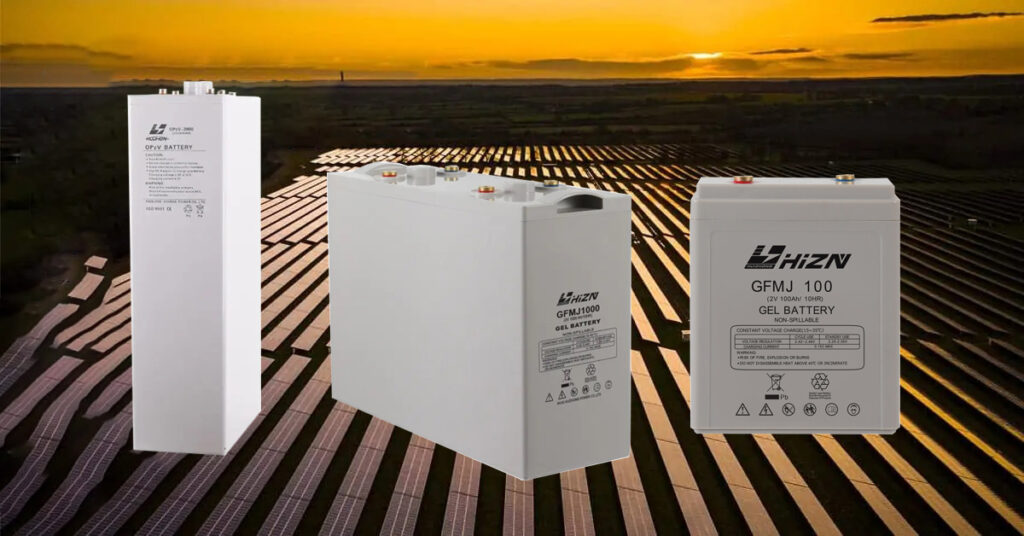Choosing between a GEL battery and an OPzV (also known as tubular gel) battery for a photovoltaic (PV) system depends on various factors such as performance requirements, environmental conditions, budget, and specific application needs.
- GEL Battery:
- Advantages:
- Maintenance-free: GEL batteries are sealed and do not require watering or electrolyte maintenance.
- Resistance to deep discharges: GEL batteries typically have good resistance to deep discharges, making them suitable for off-grid PV systems.
- Better performance in high-temperature environments: GEL batteries tend to perform better in high-temperature conditions compared to flooded lead-acid batteries.
- Disadvantages:
- Lower energy density: GEL batteries usually have lower energy density compared to flooded lead-acid batteries, meaning they might require more space for the same energy storage capacity.
- Lower charge and discharge rates: GEL batteries generally have lower charge and discharge rates compared to flooded batteries.
- Advantages:
- OPzV Battery (Tubular Gel):
- Advantages:
- Longer lifespan: OPzV batteries typically have a longer service life compared to GEL batteries, especially in deep-cycle applications.
- High cycle life: OPzV batteries are designed for deep-cycle applications and can withstand frequent deep discharges.
- Higher energy density: OPzV batteries generally have higher energy density compared to GEL batteries, meaning they can provide more energy storage capacity in a smaller footprint.
- Disadvantages:
- Higher initial cost: OPzV batteries tend to have a higher initial cost compared to GEL batteries.
- Requires ventilation: While OPzV batteries are sealed and maintenance-free, they may still require ventilation to dissipate heat generated during charging.
- Advantages:
In summary, if you prioritize a maintenance-free solution with good resistance to deep discharges and are operating in moderate temperature environments, a GEL battery might be suitable for your PV system. However, if you require longer service life, higher energy density, and better performance in deep-cycle applications, an OPzV battery could be a better choice despite the higher initial cost.


